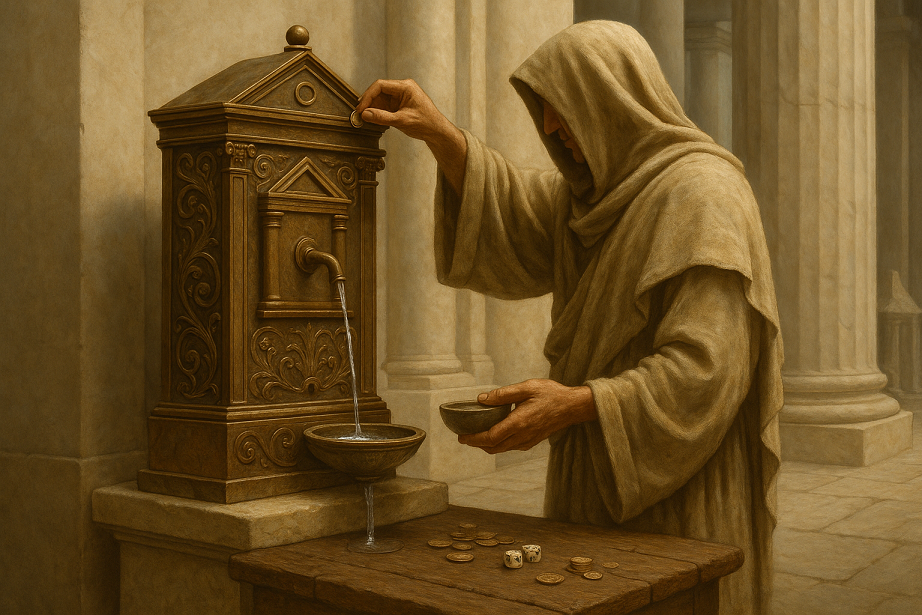When you think of the origins of the slot machine, you might picture the dusty saloons of the American Old West. But the fundamental mechanical principle that makes every slot machine work is far older, originating not in a saloon but in a sacred temple in 1st-century Roman Egypt. The inventor was the brilliant Greek engineer and mathematician, Hero of Alexandria, and his creation was the world’s first-ever vending machine.
An Invention for the Gods, Not for Gambling
Hero’s device was designed to solve a very practical problem in local temples: worshippers were taking more holy water than their donations warranted. To automate the process and ensure a fair exchange, Hero invented a machine that would dispense a set amount of liquid when a coin was inserted.
The mechanism was ingenious in its simplicity. When a person dropped a coin into a slot, the coin’s weight would fall onto a small pan attached to a lever. This lever would open a valve, allowing the holy water to flow out. As the pan tilted, the coin would eventually slide off, and a counterweight would snap the lever back into place, closing the valve and stopping the flow of water. It was a perfect, self-regulating system.

The Casino Connection: The “Coin-In, Result-Out” Mechanic
It is essential to understand that Hero’s vending machine was not a gambling device. There was no chance, no risk, and no variable prize. The outcome was always the same: one coin equaled one portion of holy water. However, it represents the absolute conceptual origin of the slot machine for one critical reason: it established the “coin-in, result-out” mechanic.
This is the fundamental principle that defines every slot machine:
- A user provides a standardized input (a coin or credit).
- The machine automatically performs an action without human intervention.
- The machine provides a standardized output or result.
Hero’s machine proved that an automated device could be trusted to execute a transaction. It was the first time a coin was used to activate a mechanism that dispensed a product. This core concept remained largely dormant for nearly 1,800 years until it was resurrected for a very different purpose.
From Holy Water to Jackpots
In the late 19th century, inventors like Charles August Fey took Hero’s “coin-in, result-out” principle and added the revolutionary element of chance. Instead of dispensing a guaranteed product like water, their new machines used a coin to trigger a spin of reels, delivering a random result. This result could be a loss, a small prize, or, if the player was very lucky, a large jackpot.
Without the foundational concept of an automated coin-operated dispenser, first realized by Hero of Alexandria, the modern slot machine as we know it could not exist. It is a remarkable journey for an idea—from ensuring piety in an ancient temple to powering the most popular and profitable game on the modern casino floor.